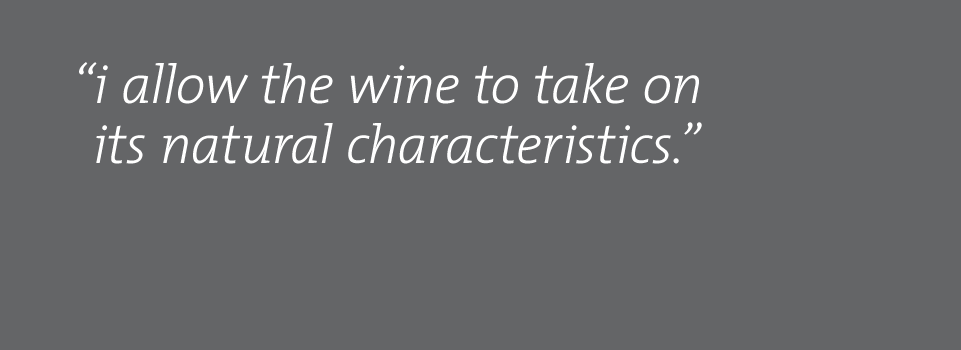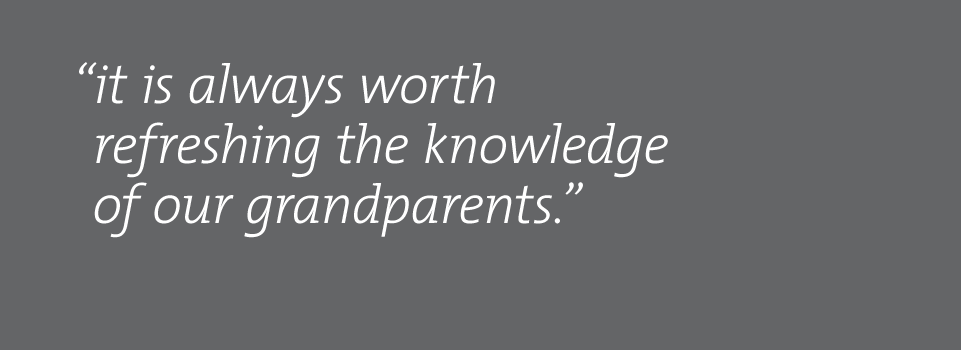
what makes a wine a true heinrich?
i work completely without the addition of commercial yeast and allow my wine to ferment naturally, through the so-called “spontaneous fermentation” process. this is no new concept, but rather it was always done this way in earlier times, until in the 70's controlled fermentation, which uses specially cultured yeast, gained the upper hand.

how exactly does that work?
in the case of spontaneous fermentation you use the yeasts naturally occurring in the vineyard, the so-called environment yeasts. 'spontaneous' does not actually mean that the grapes ferment instantly and you don't have to do anything (he laughs). on the contrary: spontaneous fermentation lasts longer, the “wild yeasts” usually require a lot of time before they begin their work. therefore the fermentation process lasts at least three months, sometimes even six or eight months. my grandmother always used to say: “do not separate the child, or the wine, too soon from the mother, or the yeast.” you have to regularly use the microscope and thereby make sure that the correct yeasts are ready.
because the fermentation process lasts several months, you get the new vintage significantly later. however, it is worth the effort, and the wait: the wines are usually better, at least as good as, and actually never worse than when you add yeast.

why then don't you make every wine this way?
as a wine producer you has less influence on the wine because you are giving nature more 'right to be heard'. this approach is much closer to nature: you allow the wine to take on its natural characteristics. with uniform yeast the wine producer can have more influence, he can achieve more “designing”, for example, more body or more fruitiness by the selective addition of particular yeasts. but that makes the wine reproducible and uniform.
do the naturally fermented wines taste different?
yes! they do not age so quickly and are fresher because the yeast keeps the wine young. it develops a pleasant creaminess – these wines are harmonious in the mouth and intensive in taste. i find that nature does her job well. by using environment yeasts you get wine with which you can taste the vintage and the origin, and which are more multilayered and varied.

what else do you do differently?
my goal is to have a vineyard that is close to nature; as far as possible without, or with very little, plant protection agents. therefore i follow with great interest the development of interspecific vines. these are vine varieties which are resistant to fungi and parasites. these were for a time very discredited, but in the meantime their cultivation has made gigantic steps forward: now some terrific varieties are waiting on the starting blocks. for me this is the organic type of wine cultivation. i have also already experimented with homeopathy for plants to try and strengthen the vines.
even though on the one hand i am open-minded and adventuresome, it is also important to me to maintain the other tried and tested methods, or to revert back to them. it is always worth taking a look back and refreshing the knowledge of our grandparents: they knew a great deal – but sadly much of this knowledge has been lost.
wine onlineshop alexander heinrich
in conversation with alexander heinrich
the wines from the heinrich winery
opening time winery alexander heinrich
weingut heinrich · a | heinrich · outstanding württemberg wine from the weinsberg valley · obersulm, sülzbach